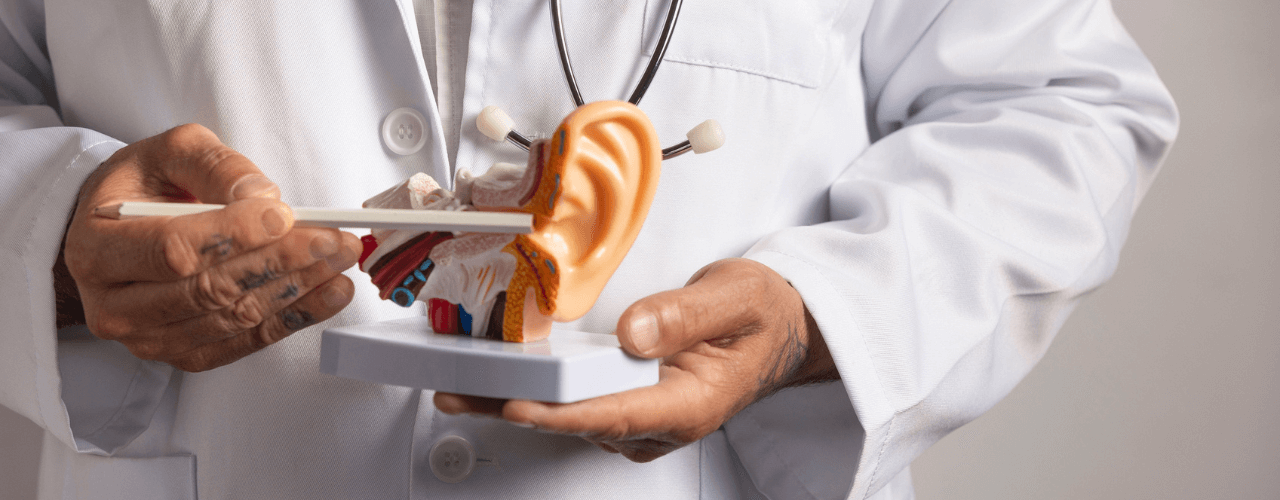How to Treat Sinus Pain Quickly and Safely at Home & When Should You Visit an ENT Clinic?
Feeling that deep, pressing ache behind your eyes? Wondering how to treat sinus pain quickly before it steals your day? Sinus pain can cloud your focus, drain your energy, and make even small tasks feel overwhelming. While home care can ease mild symptoms, knowing when to seek help from an ENT clinic ensures your comfort and prevents complications.
At Harley Street ENT Clinic, our specialists guide patients through effective ways to treat sinus pain safely, restoring comfort while addressing the root cause. This guide will help you understand what you can do at home for relief, what to avoid, and when it’s time to visit an ENT specialist.
Understanding Sinus Pain
Sinus pain typically results from inflammation in the sinus cavities, leading to pressure, tenderness around your face, and sometimes headaches. This discomfort often comes with nasal congestion, reduced sense of smell, and thick nasal discharge. Sinus pain can be caused by infections, allergies, or structural issues affecting sinus drainage.
Mild sinus pain often resolves with home care, but persistent, severe, or recurring symptoms may indicate sinusitis requiring professional treatment.
How to Treat Sinus Pain Quickly and Safely at Home
Stay Hydrated
Drinking enough fluids is a simple yet powerful way to treat sinus pain quickly at home. Water helps to thin mucus, making it easier to drain from your sinuses and reducing the pressure that causes discomfort. Warm drinks like herbal teas and clear broths add soothing warmth, which can help open nasal passages and ease congestion while providing hydration.
Sipping fluids regularly throughout the day keeps your throat moist and supports your immune system during recovery. If you struggle with plain water, try adding lemon slices for a gentle flavour boost. It is helpful to avoid excessive caffeine and alcohol, as these can contribute to dehydration and worsen your sinus pain.
Use Warm Compresses
A warm compress can ease facial pain and pressure that often comes with sinus discomfort. Applying a warm flannel or heat pack across your cheeks, nose, and forehead encourages your sinuses to open, promoting drainage and reducing congestion. This can be done by soaking a clean flannel in warm water, wringing it out, and placing it on your face for around ten minutes.
Using a warm compress a few times a day can also help relieve tension headaches that sometimes accompany sinus issues. It offers a comforting moment to pause and rest while providing a gentle, safe method to support your body’s natural healing process during a sinus flare-up.
Try Steam Inhalation
Breathing in steam can help loosen thick mucus, reduce congestion, and ease irritation within your sinus passages. A warm shower can be an easy way to benefit from steam, or you may choose to use a bowl of hot water, placing a towel over your head to gently inhale the steam for a few minutes while keeping a safe distance from the water.
Steam can help reduce swelling in your nasal passages, making it easier to breathe while easing sinus pain and pressure. Some people find adding a few drops of eucalyptus or peppermint oil beneficial, but it is important to use essential oils with caution and avoid them if you are sensitive.
Keep Your Nasal Passages Moist
Dry air can make sinus discomfort worse, so keeping your nasal passages moist is essential when treating sinus pain at home. Using a saline nasal spray can help keep your nasal passages hydrated while assisting in clearing out mucus, allergens, and irritants that may be contributing to your discomfort.
You may also consider using a saline rinse with a neti pot to flush your nasal passages gently, supporting natural drainage and easing congestion. Always use sterile or boiled and cooled water for rinses and clean your device thoroughly after each use to maintain hygiene during your home care routine.
Rest and Support Your Immune System
Resting allows your body to focus on recovery, reducing inflammation in your sinuses and supporting your immune system to fight infection. If your sinus pain is linked to a cold or sinus infection, prioritising rest can help ease your symptoms while giving your body time to heal.
Alongside rest, eating a balanced diet rich in fruits, vegetables, and whole grains provides essential nutrients that support your immune health. Staying hydrated, using a humidifier if your environment is dry, and maintaining gentle movement such as short walks can aid circulation and comfort as you recover from sinus pain.
What to Avoid When Treating Sinus Pain at Home
While managing sinus pain at home, avoid overusing decongestant nasal sprays, as prolonged use can worsen congestion. Avoid smoking and exposure to polluted environments, as these can increase sinus irritation and prolong discomfort. It is also best to avoid very dry indoor air, which can aggravate your nasal passages and make congestion feel worse. Try to avoid sudden temperature changes, as moving quickly from cold to warm environments may trigger sinus pain and pressure.
When Should You Visit an ENT Clinic?
While many sinus issues resolve with home care, there are times when professional assessment is essential. Consider visiting an ENT specialist if you experience:
- Sinus pain lasting longer than 10 days without improvement, as prolonged discomfort may indicate an infection or blockage needing treatment.
- Severe facial pain or swelling that may signal complications requiring medical attention to prevent worsening symptoms.
- High fever with sinus symptoms which could indicate a bacterial infection that needs prompt and effective treatment.
- Vision changes or swelling around your eyes, as these can be signs of serious sinus complications requiring urgent care.
- Recurrent sinus infections that keep returning and affecting your daily comfort and overall wellbeing.
- Persistent nasal congestion impacting your ability to breathe comfortably or your quality of life.
- Symptoms worsening after initial improvement, as this may indicate an unresolved issue needing professional assessment.
How an ENT Specialist Can Help
When home care isn’t enough to treat sinus pain, an ENT specialist can offer medical treatments, including prescription medications such as nasal corticosteroids or antibiotics if a bacterial infection is identified. For persistent or recurrent sinus pain, treatments such as balloon sinuplasty or other minimally invasive procedures may be recommended to improve sinus drainage.
Our specialists also provide guidance on managing allergies and other underlying factors that may contribute to sinus pain, helping you prevent recurring discomfort. Learn more about our sinusitis treatments here.
Preventing Sinus Pain in the Future
While sinus pain can sometimes be unavoidable, there are steps you can take to reduce your risk of developing sinus discomfort. Staying hydrated helps keep your mucus thin and your sinuses clear, while managing allergies can reduce inflammation that may lead to blockages.
Using a humidifier during dry seasons, maintaining good hand hygiene to reduce infections, and avoiding exposure to pollutants and smoke can support your sinus health. If you are prone to sinus infections, seeking early treatment for colds and allergies can help prevent complications.
Expert Sinus Care You Can Trust
At Harley Street ENT Clinic, we look beyond quick fixes to address the root cause of your sinus pain. Using advanced diagnostics and specialist care, we create tailored treatment plans to relieve discomfort and prevent recurring issues.
We offer same-day sinus assessments in a calm, professional setting, ensuring you receive prompt, expert care. With our personalised approach, you can feel confident your comfort and long-term health are always prioritised.
Don’t Let Sinus Pain Steal Your Day
Sinus pain shouldn’t hold you back. Let our specialists help you find lasting comfort.
Contact Harley Street ENT Clinic today to book your sinus pain consultation.












